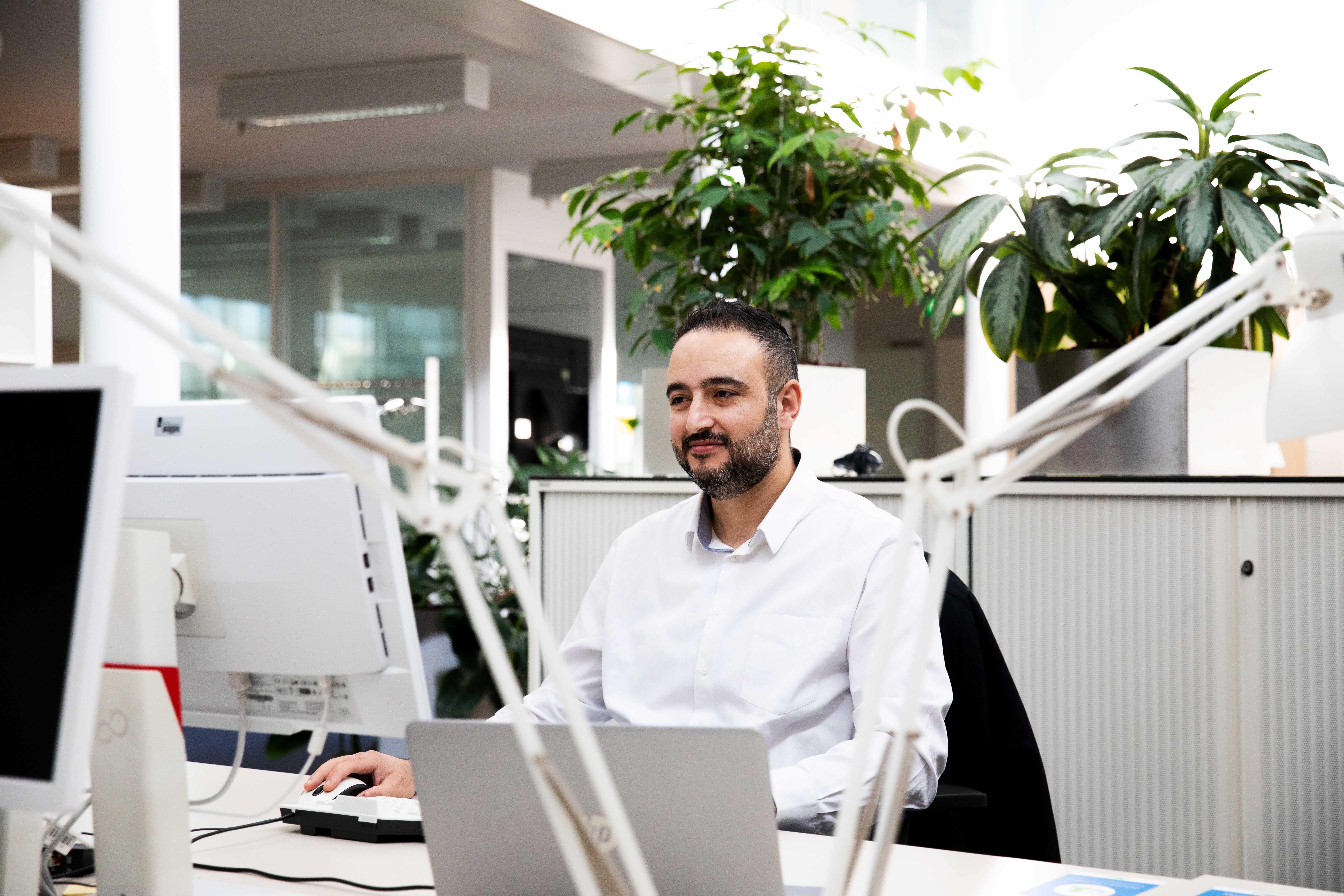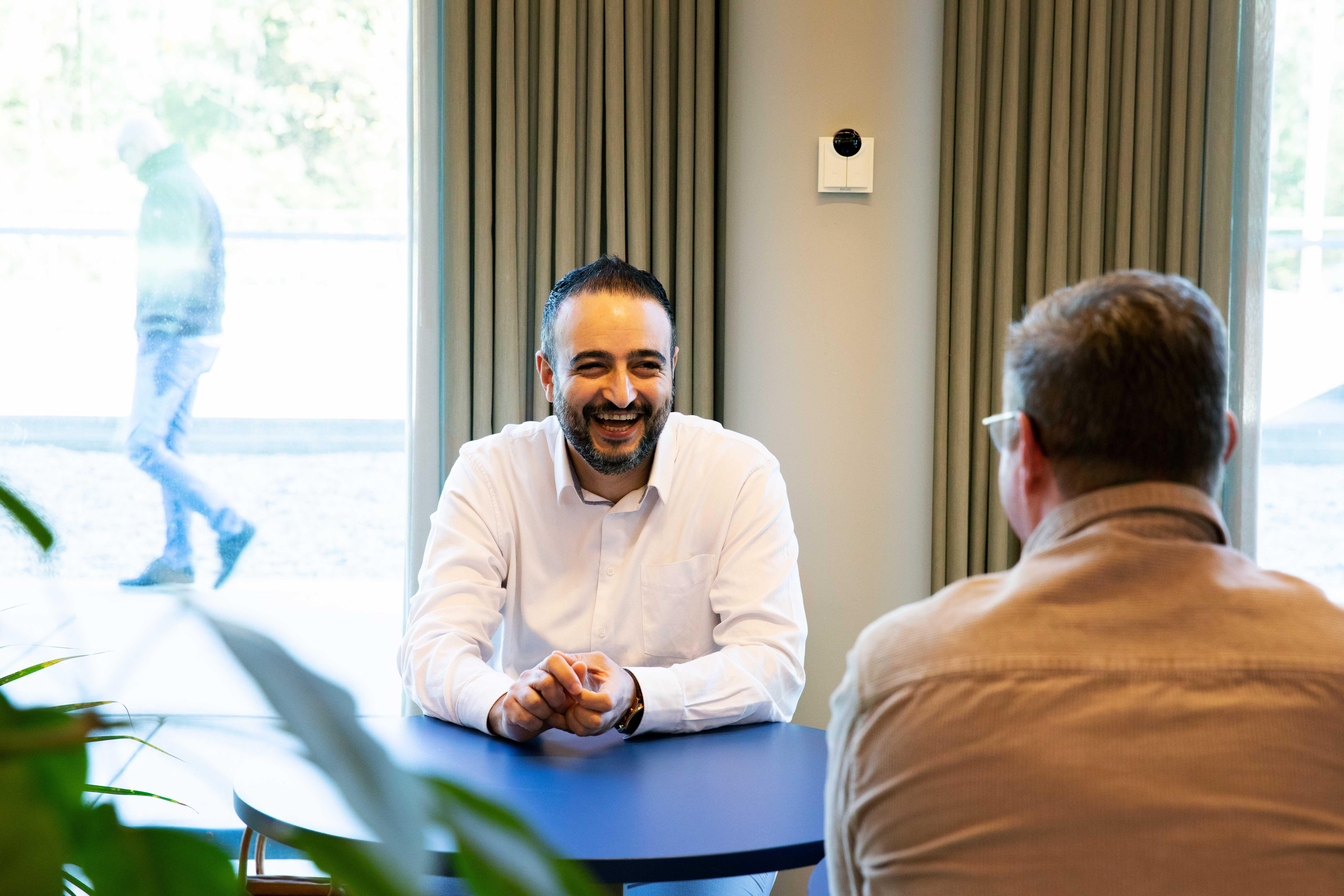
Rijkswaterstaat (RWS) is the executive agency of the Ministry of Infrastructure and Water Management in the Netherlands. The organization manages and develops main roads, main waterways and main water systems on behalf of the ministry. The service's main tasks are to work on the smooth and safe flow of traffic (dry water system), maintenance and improvement of the system of waterways (wet water system), and protection against flooding.

Since 2019, Roni Ahmad has been using Alvero Furniture Management (AMM) for the Department of Public Works. The system provides 24/7 visibility into what you have in terms of office furniture and what you need. Meanwhile, 64,000 pieces of furniture at more than 200 locations have been RFID tagged with all relevant information recorded in the system. This allows Roni, as a broker of circular office furniture, to actually bring supply and demand together.
Inventory, tag and record 64,000 pieces of furniture 200+ locations.

Roni Ahmad - broker circular office design at Rijkswaterstaat (RWS). Critical, analytical, welcoming and team player are the words that describe Roni well. Roni gets excited when he can motivate others to discover and use their talents. His ambition is to excel in an environment where the focus is on a future realized from a personal vision.
The position broker circular office design is new within RWS. Roni can therefore interpret his task with his own approach, finding the right balance between temporary needs and the consequences of decisions taken. His ambition to make the world a little better runs like a thread through his work. "There is still too much focus on ownership and not enough on use. We have 64,000 pieces of furniture and we should be able to do a lot more with them. We can achieve this by redistributing as much furniture as possible and making sure it ends up where it is needed," Roni said. He continues : "It starts with the right insight and the tools to manage this. Alvero Furniture Management can make a big contribution to this. Because you know what is there and where it is, what condition it is in, when it needs maintenance and what you need, 'new used' furniture can be given a (different) purpose and meet a temporary need," Roni says. "Take the maintenance program within the furniture management system. That is aimed at making sure, for example, that an office chair can be used as long as possible by cleaning, repairing or reupholstering it on time. The system provides insight that allows you to make and substantiate choices. If an office chair is then superfluous at a location, the system offers the possibility of offering it elsewhere within RWS, so that the furniture is put back into use." Each new piece of furniture requires raw materials, which are becoming increasingly scarce. Moreover, the price of new raw materials keeps rising. By reusing furniture again and again, the most profit can be made. In terms of money, insight into the use of primary raw materials and in the reduction of CO2 emissions.

AMM provides insight that allows Rijkswaterstaat to move along between supply and demand.
In addition, he can provide stakeholders within RWS with relevant (financial) management information at any time, to make decisions and to achieve objectives. Roni is already secretly dreaming about the time when the entire central government is connected to the furniture management system, making it easy for all central government furniture to find its way.
RWS has begun planning programming with the arrival of Roni using the R-Ladder, which indicates the degree of circularity. The higher a strategy ranks on the R-Ladder, the more circular it is. The first steps have now been taken by inventorying, tagging and registering 64,000 pieces of furniture, from which as much relevant data as possible will be retrieved. With this data, RWS has begun to manage the furniture. Steps are increasingly being taken to maintain, repair, refurbish and redeploy furniture internally. "We are now in the initial phase. The ultimate goal is to start deploying 'new used' furniture externally as well, or actually be able to offer it externally," Roni concluded.


The Department of Public Works wants to be fully circular by 2050. A sustainable strategy aims for the office furnishing category to be circular as early as 2030. Rijkswaterstaat wants to purchase as little (new) furniture as possible and use products, parts and materials that are already in place as much as possible. So that as few primary raw materials as possible are used. It is important to achieve this together. First within RWS and then throughout central government.
credits
Rijkswaterstaat Utrecht
Roni Ahmad
Alvero Netherlands
Guus de Krom
Robin Looman (photography)
Valentijn van den Heuvel (film)
Partners
Nowy Styl Nederland
Patrick van Dommelen
Want to know more about the case of Rijkswaterstaat?
Please feel free to ask for additional information and ask your questions. Joris will be happy to tell you all the ins and outs of this case.

